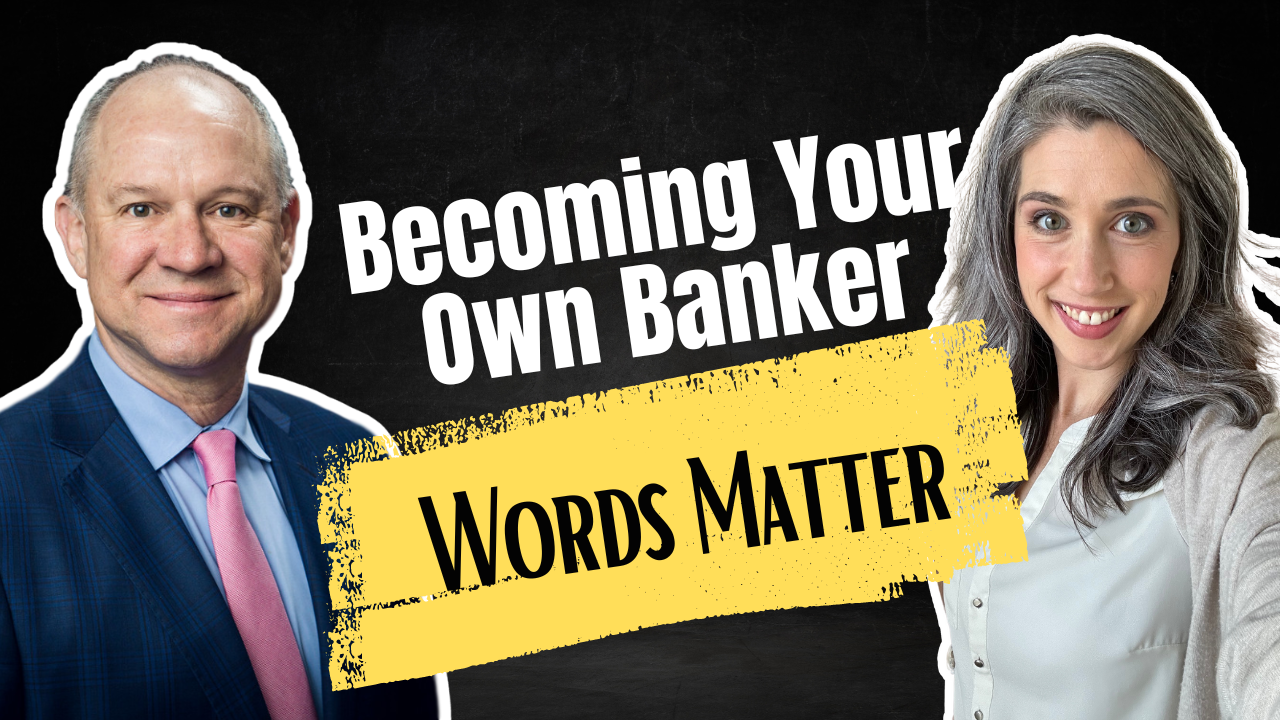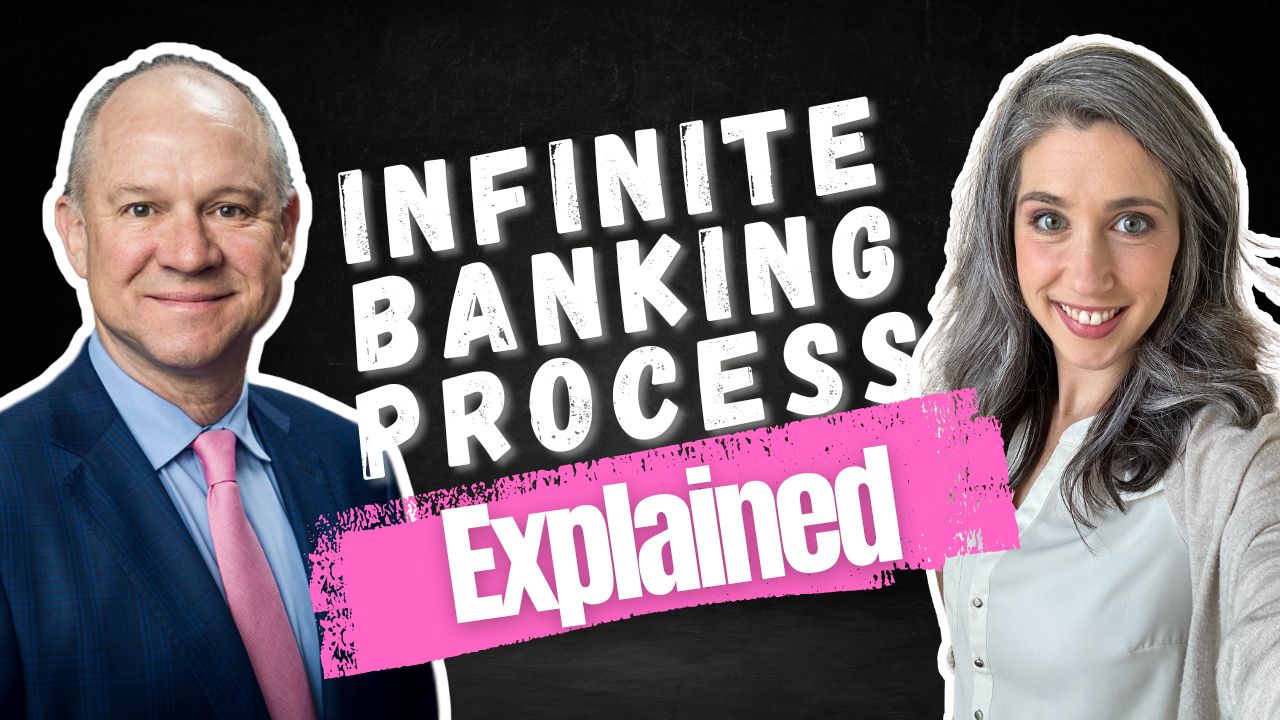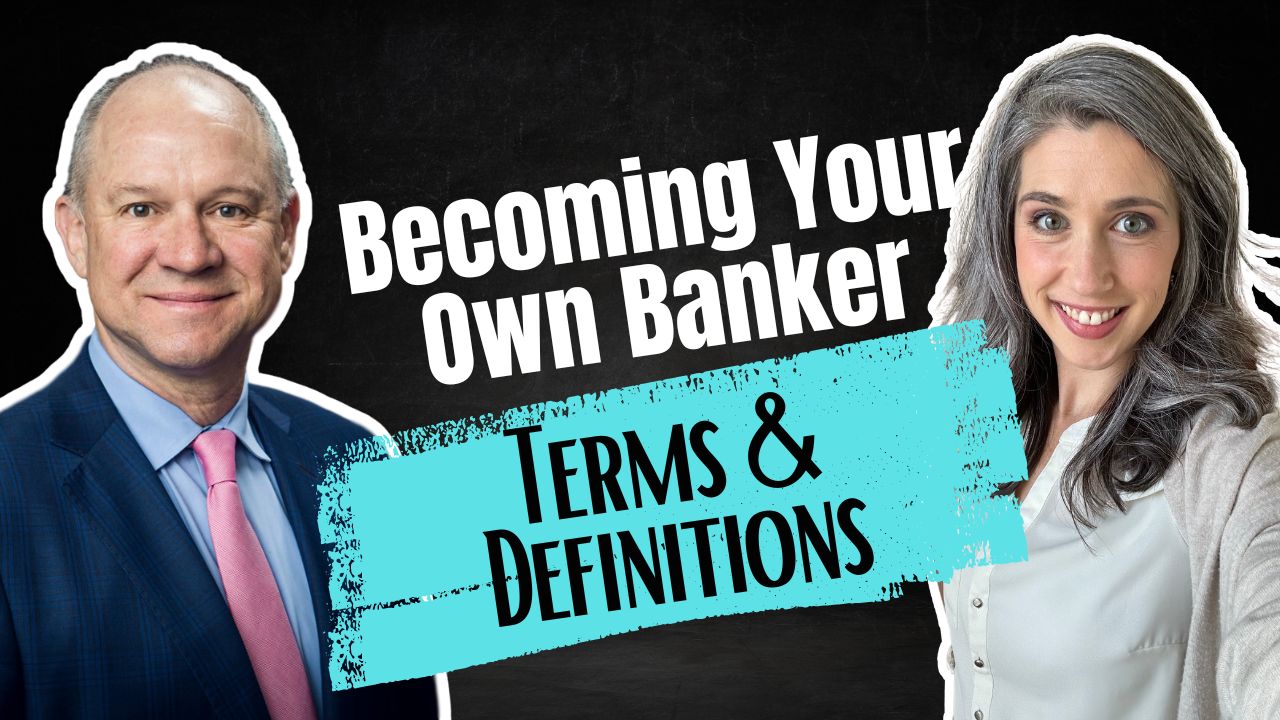
Becoming Your Own Banker, Part 29: Words Matter
Ever felt like financial jargon was designed to confuse rather than clarify? Join us as we navigate the labyrinth of financial terminology, particularly within the infinite banking sphere. It’s not just about learning by rote; it’s about cementing a rock-solid financial strategy based on clear, precise language. By dissecting common misconceptions, we aim to transform your understanding from hazy to laser-focused, providing you with the tools to discern financial facts from fiction and proving that words matter.
Journey with us as we illuminate the enigmatic world of life insurance company ratings, Comdex scores, and the lifeline that is the reserve fund. Grasping these concepts is not just about knowledge—it’s about safeguarding your future dividends. Our personal stories bring these ideas to life, showing how life insurance company policies can influence your financial trajectory. We’ll also equip you with a broader vision of the infinite banking concept, one that goes beyond dividends to a holistic view of accessible capital, cash value growth, and the profound benefits of a well-designed system.
Finally, become the architect of your own prosperity by mastering the finance tools at your disposal. As we explore the principles of disciplined savings and strategic capital use, you’ll learn to cultivate a mindset that prioritizes wealth creation over mere accumulation. We invite your questions and curiosity, as they fuel our mission to empower you to make informed, confident financial decisions. So, let’s transform your understanding of finance and pave the way to a thriving financial legacy.
And clarity in the fundamentals leads to clarity in your use of the whole strategy.
Join us as we continue the series through Becoming Your Own Banker with Part 2 on the Glossary of Terms.
Podcast: Play in new window | Download (Duration: 1:01:32 — 70.4MB)
Subscribe: Apple Podcasts | Spotify | Android | Pandora | RSS | More
Table of Contents
IBC Glossary of Terms, Continued
Definition of Co-Generation
This is a term used in conversations on electrical power that acknowledges that there are many sources from which to generate power within the distribution system, many of which are both producers and consumers of power. In other words, to generate the end product (electricity/power) there isn’t just one component, and it isn’t just producing. Many components within the system produce AND consume power before the final product is complete.
Applied to banking, you can understand that in a properly working system, there are going to be times for capitalization (“producing”) and times for leverage (“consuming”). The process of banking is not just stockpiling, it is ALL functions of money.
Definition of Classification
Webster’s Dictionary defines classification as “the act of grouping into classes that have systematic relations, usually founded on common properties.” In other words, we all classify things based on their major characteristics. Classification is a great tool because it can help us compartmentalize new information and fit it into what we already know.
But when it comes to life insurance, there is a great challenge, which is laid out in Becoming Your Own Banker, to rethink your thinking. After all, it would be tempting to classify life insurance as any other insurance product and move on. But when we do this, we miss out on the chance to form a proper mental construct of what whole life insurance is and can do.
Though life insurance is certainly insurance, whole life insurance with a dividend-paying mutual insurance company shares characteristics with banking, and should be classified as such. It just requires that you see things a little bit differently and dig a bit deeper.
Definition of Contingency Fund
This is the amount of money an insurance company retains as surplus after paying death claims, expenses, and dividends. This is the insurance company’s balance sheet, and their contingency fund (surplus) is a sign of strength. If an insurance company has a healthy contingency fund after paying all expenses and dividends, you can be confident in their ability to pay future dividends, too.
The reason whole life insurance companies have this fund is because they make very conservative, long-term investments that allow them to make a profit on behalf of their policyholders, which comes back to policyholders as dividends. Mutual companies must invest conservatively, because this translates to long-term success, rather than short-term gain.
Definition of Earnings
The earnings of a life insurance policy are based on the company’s mortality expense and investment experience during the year. These earnings are non-guaranteed dividends, which is why they’re dependent on those factors. Fortunately, despite being non-guaranteed, they’re also highly expected. Most mutual companies have paid dividends every year for the last 100 years, give or take depending on the company.
Dividends are NOT a rate of return, they are a declaration of what’s being credited and they only happen to look like a rate. It’s important not to get hung up on the “rate,” which fluctuates from year to year by company anyway. It’s much more powerful to seek out companies with a good history of paying.
The Fundamentals of Infinite Banking
Infinite Banking, at it’s most fundamental, is recognition that you can control your own personal flow of money. By choosing a dividend-paying mutual insurance company, you get to partake in dividends and interest that help you grow your capital reserves that can be used for anything you wish while you’re alive. You can do so by leveraging your money, rather than withdrawing it, which allows you to grow your dollars while you use them.
Not only that, but when you die, your children and maybe even their children will get a death benefit that far exceeds the premiums you put into the policy. This can be reinvested into the family banking system to create more wealth and opportunities for generations to come—so that your legacy lives beyond you.
This is made possible by the contractual guarantees of the policy you put in place. And when you look at this framework, you can see that this is far more impactful than just chasing a rate of return or dividend. And not only that, but it becomes a wonderful generational tool. And so, by this simple shift in thinking, thanks to what we’ve learned through Nelson’s book, you can create this powerful system for yourself that FREES you from the roller coaster of the stock market completely.
Book A Strategy Call
Do you want to coordinate your finances so that everything works together to improve your life today, accelerate time and money freedom, and leave the greatest legacy? We can help! Book an Introductory Call with our team today https://themoneyadvantage.com/calendar/, and find out how Privatized Banking, alternative investments, or cash flow strategies can help you accomplish your goals better and faster. That being said, if you want to find out more about how Privatized Banking gives you the most safety, liquidity, and growth… plus boosts your investment returns, and guarantees a legacy, go to https://privatizedbankingsecrets.com/freeguide to learn more.
Becoming Your Own Banker, Part 30: Infinite Banking Process Explained
Why does Infinite Banking work? We’ll look at the flow of money through the economy, where it is pooling, who owns it, who controls it, and who gets access. This is the Infinite Banking Process explained; and this clarity will tell you everything you need to know about how money works. Unlock the secrets to…
Read MoreBecoming Your Own Banker, Part 28: Infinite Banking Definitions
Have you ever felt like you’re on a financial hamster wheel, constantly spinning but never gaining traction? Join us as we unpack the epilogue and glossary of Nelson Nash’s “Becoming Your Own Banker.” It’s a journey through the intricate philosophy of IBC, as we cover Infinite Banking definitions that shows how effective money management can…
Read More


